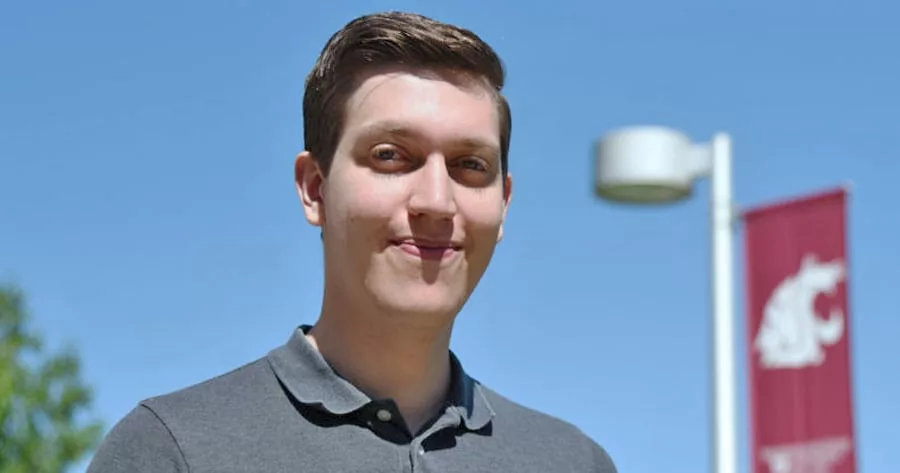
Home » Valedictorian finds niche in electrical engineering
Valedictorian finds niche in electrical engineering

May 13, 2016
By Maegan Murray for TCAJOB
Lorenzo Luzi was 4 years old when he moved with his parents to the United States from Italy in search of better opportunities. But it wasn’t until he came to Washington State University Tri-Cities as a transfer student that he found his true calling in electrical engineering where his hard work would earn him the designation of valedictorian.
“I actually used to be a terrible student,” he said.
Luzi had excelled in math and enjoyed working with computers. Putting the two subjects together in college, he realized he could put forth his interests to prepare for a future career that could make a worldly impact. Luzi accomplished a 4.0 grade-point average throughout his tenure at WSU Tri-Cities.
“I found something that I really enjoyed doing and could really excel in,” he said. “I realized I could apply all the things I learned in class to something practical.”
Since transferring to WSU Tri-Cities from Columbia Basin College, Luzi has used his academics to grow his interest in leadership and engineering research. Luzi currently serves as the WSU Tri-Cities environmental club treasurer, in addition to serving as a member of the Crimson Crew dance club and as a member and tutor for TRiO, which provides tutoring and support services to low-income, first generation and disabled students.
For the past two years, Luzi has interned at the Pacific Northwest National Laboratory where he completes work in signal processing and algorithm development.
“My work basically consists of taking a raw signal and developing it into something you can use,” he said. “Like with an ultrasound, you put a device on a woman’s stomach and get an image out of it. But in reality, what you’re getting is a bunch of numbers. You have to convert those numbers into an image and something useable.”
For his senior design capstone course at WSU Tri-Cities, he and a group of students are working with PNNL to develop a system to balance the electrical grid as it applies to residential housing.
“The electrical grid is prone to fluctuations,” he said. “Let’s say you have a wind farm and there is a gust of wind that comes along and produces a lot of power. You can’t just put that on the grid. There are currently two ways of monitoring this: you can store it in a type of battery system or use it.”
Luzi said with the system they developed, it changes the load each house would take o
“If you have a bunch of houses and the power kicks up, they would all start to consume a little more of it to balance it all out,” he said. “We worked on this algorithm and implemented it into a physical model.”
Luzi said following graduation, he plans to continue working for PNNL for at least a year before pursuing graduate school, which will allow him to dive further into electrical engineering research.
“I want to do some groundbreaking research that could really make a difference,” he said.
Local News
KEYWORDS may 2016 washington state university





